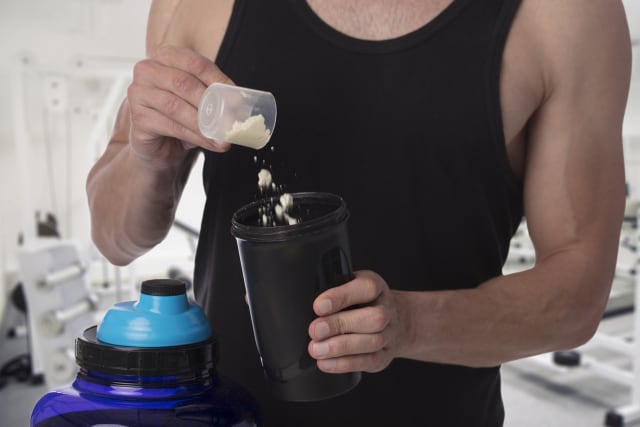Crash course on creatine
Pros and cons of the popular workout supplement.
Article Date:

When starting out on a fitness journey, many people are unsure where to begin. They have to consider things like exercise regimes, gym memberships, time commitments, and proper nutrition and diet.
People want results, and they want them immediately. Gym-goers who strive to reach their fitness goals or maximize workouts have turned to a wide range of pre- and post-workout supplements to boost their athletic performance and muscle gains. Social media has played a vital role in this rise in popularity.
One pre-workout supplement in particular, creatine, has skyrocketed in consumer demand due to its supposed success in prolonging energy and building muscle.
How creatine boosts performance
Creatine is a natural supplement used to boost athletic performance and is one of the world’s most popular products for building muscle and strength.
“It's derived from three amino acids: methionine, glycine and arginine,” said Alejandro Pena Jr., MD, a cardiologist with Baptist Heart Specialists. “Approximately 95% is stored in the muscle, with the remainder being in the brain, testicles and kidneys.”
While creatine is found naturally in meat, fish, eggs, cheese, nuts, beans and tofu, many workout enthusiasts have turned to taking supplements to boost their muscle strength, power and size, as well as overall athletic performance.
When a person consumes creatine, their blood transports it to the skeletal muscles where it’s stored as a high-energy molecule called phosphocreatine. This creates adenosine triphosphate (ATP), which produces energy to fuel your muscles during high-intensity exercises and recovery.
Creatine allows you to go harder during your workout for a longer period, whereas high-intensity activity typically depletes cells of ATP quickly.
Benefits for muscle growth
Besides helping you endure and perform as many reps as possible, the supplement increases the body’s water content. This makes muscles appear more swollen and pumped, and equips them with more energy for longer, more intense workouts. Additionally, creatine helps hydrate the body’s muscles, which is beneficial in regulating temperature during extreme weather and high-exertion workouts.
“Taking creatine for lifting weights is the most common use as it helps with muscle fatigue and energy levels,” said Dr. Pena.
It also helps improve muscle mass by increasing the production of proteins that repair damaged muscle fibers. When an individual works out, he or she is breaking down the body’s muscle fibers. During recovery, the body builds them back up and speeds up muscle repair, making them stronger than they were previously.
Safety and daily limits
As with any supplement, there is a limit on how much creatine should be consumed per day. Dr. Pena recommended two to three grams as a safe, healthy daily limit. Taking more can cause increased fluid retention, cramping or joint issues.
“People tend to think supplements are required to have successful workouts, but that only applies to people who really want to lift professionally,” said Dr. Pena. “For most people, I think eating healthy, staying hydrated and supplementing with simple protein, like casein or whey, is sufficient.”
“My advice would be to discuss taking this supplement with your primary care physician or personal trainer prior to consuming,” he added. “Especially, since many of these supplements have multiple different components, which you may or may not need, like stimulants or caffeine.”
Is creatine right for you?
If you're unsure whether you should be taking pre-workout supplements, it’s best to consult your primary care physician. To find the right one for you, call 904.202.4YOU (4968) or visit baptistjax.com/newdoctor.



